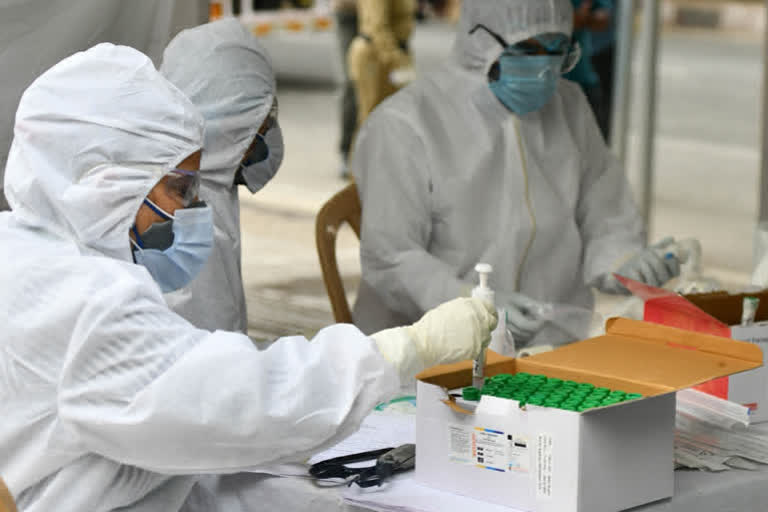Hyderabad: The World Health Organisation issued a paper titled 'Predicted impact of the COVID-19 pandemic on global tuberculosis deaths in 2020' on May 4 2020, which mainly estimates the impact of reductions in the performance of global TB detection and on TB mortality.
The research says that policies widely adopted in response to the ongoing pandemic of COVID-19, particularly lockdowns and reassignments of health personnel and equipment, are impacting the performance of TB prevention and care programmes.
A global TB case detection decrease by an average 25% over a period of 3 months (as compared to the level of detection before the pandemic), will lead to a predicted additional 190,000 (56,000 – 406, 000) TB deaths (a 13% increase), bringing the total to 1.66 (1.3 – 2.1) million TB deaths in 2020, near the global level of TB mortality of the year 2015.
In India, weekly counts of reported cases dropped by 75% in the three weeks following 22 March (average 11,367 weekly cases), the date of a strict national lockdown implementation, compared to an average of 45,875 weekly cases during the previous weeks of 2020.
A drop attributable to a blend of factors including delays in entering the data onto the real-time national online TB surveillance system Nikshay 2, reduced attendance to health services, reassignment of health personal, and a decline in TB testing and detection.
ALSO READ: Air India's repatriation flights postponed as crew members' COVID-19 tests get delayed
Based on the above observations and similar country reports, it can be predicted that if TB detection and care services are not maintained at the level of performance before the COVID-19 pandemic started, TB case detection will temporarily drop at the global level, with a resulting increase in TB mortality primarily affecting the most vulnerable TB patients.
The foretold impact on TB mortality in 2020 highlights the urgency to monitor weekly counts of newly reported TB cases in countries with real-time TB case reporting, and monthly counts in other countries, and to promptly restore the functionality of negatively affected TB detection and care programmes.
National TB detection and care programmes should be considered essential health services to prioritize and maintain during the ongoing pandemic.
It added that if the prediction is borne out, the global TB status could be pushed back by five years and the number of the deaths could be similar to the ones reported in 2015.
Given that a majority of TB deaths reported worldwide are from India, TB patients in the country could be the worst hit and thousands could lose their lives due to the absence of access to timely treatment.



